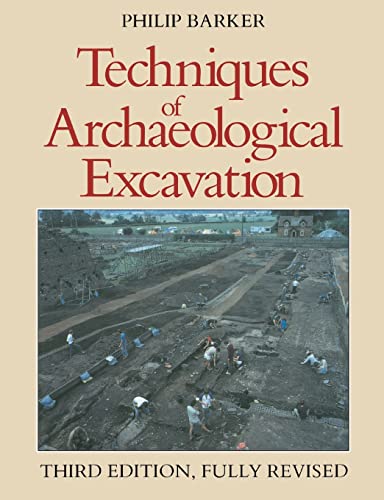

Most ebook files are in PDF format, so you can easily read them using various software such as Foxit Reader or directly on the Google Chrome browser.
Some ebook files are released by publishers in other formats such as .awz, .mobi, .epub, .fb2, etc. You may need to install specific software to read these formats on mobile/PC, such as Calibre.
Please read the tutorial at this link. https://ebooknice.com/page/post?id=faq
We offer FREE conversion to the popular formats you request; however, this may take some time. Therefore, right after payment, please email us, and we will try to provide the service as quickly as possible.
For some exceptional file formats or broken links (if any), please refrain from opening any disputes. Instead, email us first, and we will try to assist within a maximum of 6 hours.
EbookNice Team

Status:
Available0.0
0 reviews
ISBN 13: 9781134745845
Author: Philip Barker
Immediately hailed as the standard work and one of the most widely used archaeological field manuals, this survey of current excavation techniques, now in its third edition, remains an in-dispensible guide for archaeologists. his text has been written by an experienced excavator about the inadequacies of excavation techniques and the possible ways of refining them and should serve as a valuable introduction to the subtleties and spirit of modern archaeology.
1: Introduction: The Unrepeatable Experiment
2: How Archaeological Sites Are Formed
How post-holes are formed
Ditches
Ramparts
Mounds
Stone robbing and robber trenches
3: The Development of Excavation Techniques
4: Pre-Excavation Research
Non-destructive examination
Bore holes
Trial trenches and test pits
5: Problems and Strategies
Sample trenching and gridding
The choice of site to be dug and methods used
Do sites of different periods require different methods?
The excavation of timber and stone buildings—are different methods required?
Competitive tendering
6: The Processes of Excavation
Methods of excavation
Tools
Trowelling
Sieving
Sections
Special problems
The excavation of small finds
The excavation of fragile finds
The excavation of waterlogged finds
The storage and safe keeping of portable finds
Excavating graves and cemeteries
Site organization
The soil
Worms and weathering
7: Rescue and Salvage Excavation
The rescue excavation of cropmark sites
Salvage excavation and recording
The wroxeter hinterland project
8: Recognizing and Recording the Evidence
Data retrieval
Site notebooks
Single context recording
Terminology
The site grid
Site planning
Photography
Computerized recording
9: The Recording of Pottery and Small Finds
The uses and limitations of pottery as archaeological evidence
Residuality
The recording of pottery and animal bones
The recording of small finds
The value of coins as archaeological evidence
10: The Interpretation of the Evidence
Dating
Relative chronology
A bread oven at wroxeter
The limitations of archaeological evidence
Post-excavation work
Soil micromorphology
11: Scientific Aids
The use of scientific evidence
Excavation and the environment
The study of building materials
GIS and archaeology
12: Synthesis: The History of the Site
Archaeological evidence and historical documents
A model interpretation
The convergence of varying kinds of evidence: an example
All excavations are local history
Works of art as archaeological evidence
Experiments and reconstructions
excavation techniques
techniques of archaeologists in the early 1900s
archaeological excavation examples
7 steps of archaeology
5 stages of archaeology
Tags: Philip Barker, Techniques, Archaeological